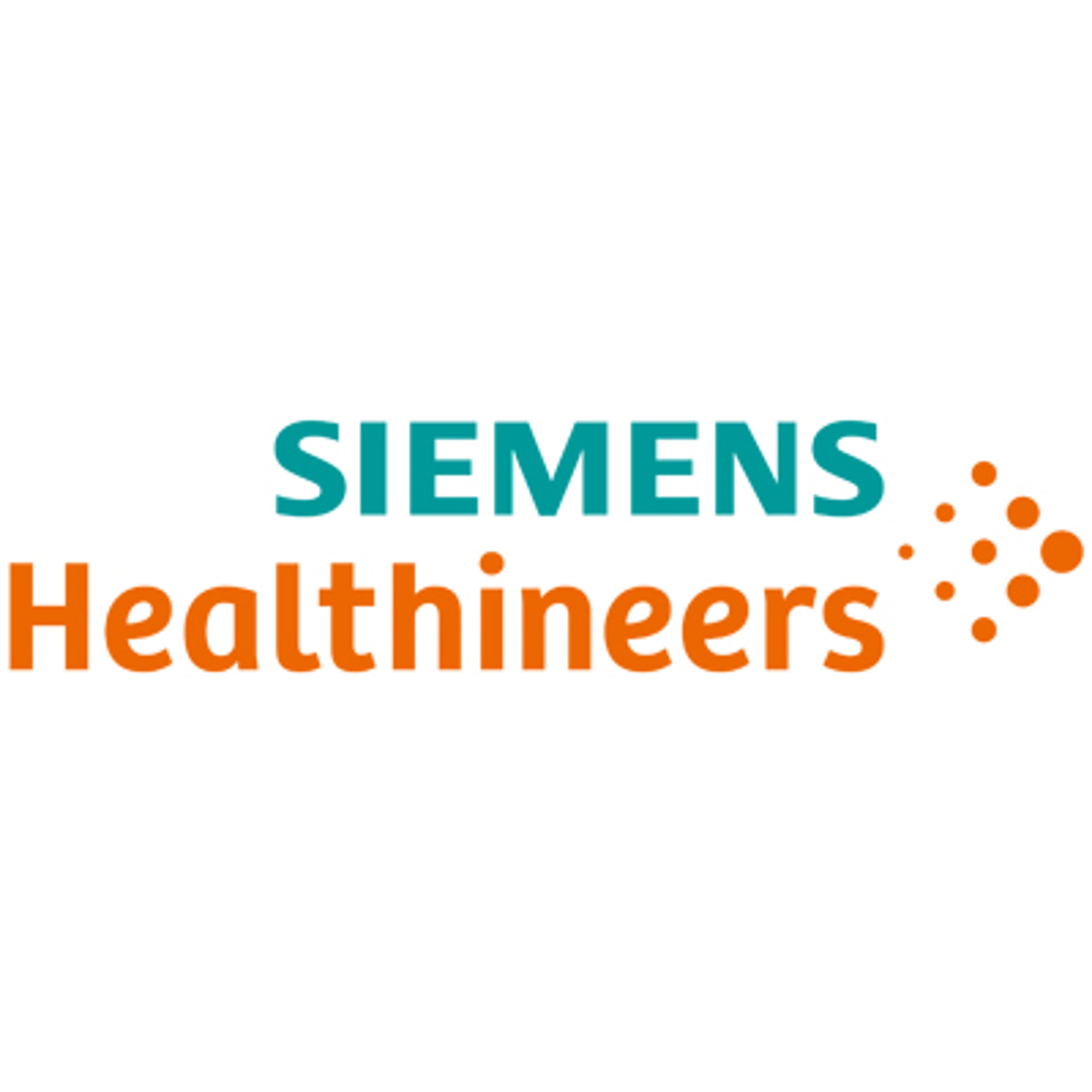The Atellica IM High-Sensitivity Troponin I assay expands capabilities in cardiac care
The first cleared troponin assay in the U.S. for longer-term prognostic insights
4 Feb 2025

Dr. Alan H.B. Wu, Core Lab Co-Director, Zuckerberg San Francisco General Hospital
The Atellica IM High-Sensitivity Troponin I (TnIH) assay offers a cutting-edge approach to improve cardiac risk prediction in the US, and empowers clinicians and patients to manage longer-term heart health with unprecedented data-driven insights. We recently sat down with Dr. Alan H.B. Wu to discuss the expanded capabilities of the Atellica IM TnIH assay. Dr. Wu has over 20 years’ experience as a thought leader in the field of cardiac biomarkers and is Co-Director of the Core Lab at Zuckerberg San Francisco General Hospital. We talked with him about the Atellica IM TnIH assay and how the updates mark a significant step forward in cardiac care by adding prognostic utility to the current diagnostic application and addressing both immediate and longer-term risks.
“Cardiovascular disease remains the number one killer of Americans,” says Dr. Wu. This highlights the critical need for efficient and precise diagnostic tools to triage and manage patients presenting with acute coronary symptoms. For years, cardiac diagnostics have relied heavily on troponin assays to deliver rapid, accurate information about acute myocardial infarction (AMI). Now, Siemens Healthineers has set a new benchmark with its Atellica IM High-Sensitivity Troponin I (TnIH) assay, facilitating the rapid diagnosis of AMI but also offering prognostic insights into a patient’s short and intermediate-term cardiovascular risk — a capability newly cleared in the US, the first of its kind.
This dual utility sets a new standard for cardiac biomarkers, emphasizing both immediate and preventative care. For laboratories and clinicians, the Atellica IM TnIH assay presents an opportunity to improve diagnostic accuracy, optimize workflows, and potentially reduce healthcare burdens caused by repeated emergency visits and adverse cardiac events.
Diagnosing AMI with precision
The Atellica IM TnIH assay continues to excel in its original role: aiding in the diagnosis of AMI. Troponin I, a highly specific biomarker for heart muscle injury, is central to this effort. By delivering results with precision across over 90% of the low end of detection, the assay enables confidence in clinical decision-making.
A key feature of Atellica IM TnIH is its speed. With a 10-minute time to first result, it provides STAT results without disrupting routine workflows — a critical advantage in high-pressure ED settings.
In the chaos of a busy emergency department, having a tool that is both fast and reliable can mean the difference between life and death.
Dr. Alan H. B. Wu Core Lab Co-Director, Zuckerberg San Francisco General Hospital
Dr. Wu highlighted the importance of this speed and accuracy, noting that rapid intervention can significantly affect patient outcomes. "In the chaos of a busy emergency department, having a tool that is both fast and reliable can mean the difference between life and death," he said.
A new frontier in prognosis
What truly sets Atellica IM TnIH apart is its expanded ability to predict likelihood of longer-term cardiac risk. The assay now aids in prognosis for 30-, 90-, 182-, and 365-day all-cause mortality and major adverse cardiac events (MACE) in patients presenting with signs and symptoms of acute coronary syndrome (ACS).
These prognostic capabilities provide actionable insights for clinicians to identify patients at risk for future events such as myocardial infarction, urgent revascularization, or cardiac death, so that physicians can design proactive, personalized care plans. “This new indication helps us predict which patients may be on the cusp of a major cardiac event,” Dr. Wu explained. Nearly 50% of patients presenting with elevated TnIH results are at risk for a heart attack or death, a statistic that underscores the importance of integrating prognostic tools into routine care1.
Addressing gaps in longer-term cardiac care
Each year, millions of patients arrive at emergency departments with chest pain, initiating a cascade of tests to rule out heart attack. For those not immediately diagnosed with AMI, the patient care pathway often ends there. Yet research shows that many of these patients remain at high risk for future cardiac events.
The Atellica IM TnIH assay bridges this gap by offering data that can inform longer-term patient care. This has the potential to lower hospital readmission rates, which are particularly high in cardiac care. Studies reveal that 30% of patients are readmitted within a year of an initial heart attack, with up to 12% overall dying within that time frame1.
“This assay empowers healthcare providers to intervene proactively to identify high-risk individuals early, potentially preventing adverse outcomes.” Further to this, Dr. Wu explains, “by promoting the value of cardiac troponin for prognosis through patient portals, we can empower individuals to understand their health, adhere to medical advice, and focus on long-term lifestyle changes that enhance longevity and prevent future illness”. This shift moves beyond diagnosis to fostering a proactive partnership between physicians and patients for healthier outcomes.
This assay empowers healthcare providers to intervene proactively to identify high-risk individuals early, potentially preventing adverse outcomes.
Dr. Alan H. B. Wu Core Lab Co-Director, Zuckerberg San Francisco General Hospital
Mitigating disparities in diagnostics
Another noteworthy feature of Atellica IM TnIH is its high sensitivity across all patient cohorts. Meeting the International Federation of Clinical Chemistry (IFCC) definition of a high-sensitivity assay, it enables equitable and actionable results.
This technical capability stems from highly specific antibody targeting, enabling the detection of subtle cardiac troponin I elevations that might otherwise go unnoticed in certain subgroups. For women, who historically face underdiagnosis of cardiac events due to biological differences and lower baseline troponin levels, this feature represents a significant step forward. By standardizing sensitivity and specificity across demographics, the assay not only improves diagnostic accuracy but also can foster equity in cardiovascular care.
Reducing interference and enhancing trust
Interferences such as biotin and hemolysis can compromise assay results, potentially leading to misdiagnosis or unnecessary follow-up tests. The Atellica IM TnIH assay is designed to minimize these common challenges, offering dependable results that clinicians can trust.
This focus on accuracy aligns with the broader mission of Siemens Healthineers to support diagnostic excellence. “…the biggest advantage with the Atellica IM High-Sensitivity Troponin I [assay] is the ability to help rule out acute myocardial infarction sooner than with the previous generation assays…enabling healthcare providers to make decisions faster, ” said Dr. Wu.
Inspiring action in labs
For laboratories, the Atellica IM TnIH assay represents an opportunity to elevate diagnostic capabilities. Its ability to deliver rapid, precise results while integrating seamlessly into existing workflows makes it an attractive option for labs seeking efficiency without compromise.
The expanded prognostic claim further strengthens the case for adoption. Labs can now play a pivotal role in not only diagnosing current conditions but also in shaping longer-term care strategies. This dual capability positions them as critical allies in the fight against cardiovascular disease.
For labs already utilizing Siemens Healthineers platforms, the Atellica IM TnIH assay offers a logical upgrade, providing new functionality that seamlessly integrates with existing system configuration and functionality. For those considering a switch, the combination of speed, accuracy, and prognostic utility presents a compelling case to join the Siemens Healthineers portfolio.
The future of cardiac care
The expanded capabilities of the Atellica IM TnIH assay mark a significant step forward in cardiac diagnostics and care. In speaking with Dr. Wu, he outlined that in addition to swiftly and accurately diagnosing AMI, he believes that it is now equally as important to identify which patients may have adverse cardiac events in the future weeks, months, and even years. “With the Atellica IM High-Sensitivity Troponin I assay, we now have regulatory approval for use of this assay in that context, and that is something that is new to the game and something that we need as laboratorians to promote. By addressing both immediate and longer-term risks, it not only enhances patient outcomes but also supports a more proactive and sustainable approach to healthcare.”
As cardiovascular disease continues to be a leading cause of death worldwide, innovations like the Atellica IM TnIH assay are not just nice to have — they are significant advances in cardiac care. By equipping clinicians and labs with tools that go beyond diagnosis to prediction, Siemens Healthineers is paving the way for a future where every patient at risk has a chance at better health.
Learn more about how the Atellica IM TnIH assay offers rapid and accurate detection of AMI.
References
1. Dreyer R.P., Raparelli V., Tsang S.W., D'Onofrio G., Lorenze N., Xie C.F., Geda M., Pilote L., Murphy T.E. Development and Validation of a Risk Prediction Model for 1-Year Readmission Among Young Adults Hospitalized for Acute Myocardial Infarction. J Am Heart Assoc. 2021 Sep 21;10(18):e021047. doi: 10.1161/JAHA.121.021047.
Disclaimer:
The expert interviewed in this article, Dr. Alan H.B. Wu, is a paid consultant for Siemens Healthineers. The expert's consultancy role with Siemens Healthineers has been disclosed to ensure transparency and maintain the integrity of the information provided.
This claim applies to Atellica IM TnIH and is intended for U.S. audiences only.
Distributed by Siemens Healthcare Diagnostics Inc. Product availability varies by country and cannot be guaranteed.
Product availability varies by country and is subject to varying regulatory requirements. Please contact your local representative for availability.
Atellica and all associated marks are trademarks of Siemens Healthcare Diagnostics Inc., or its affiliates. All other trademarks and brands are the property of their respective owners.
QR700017351

